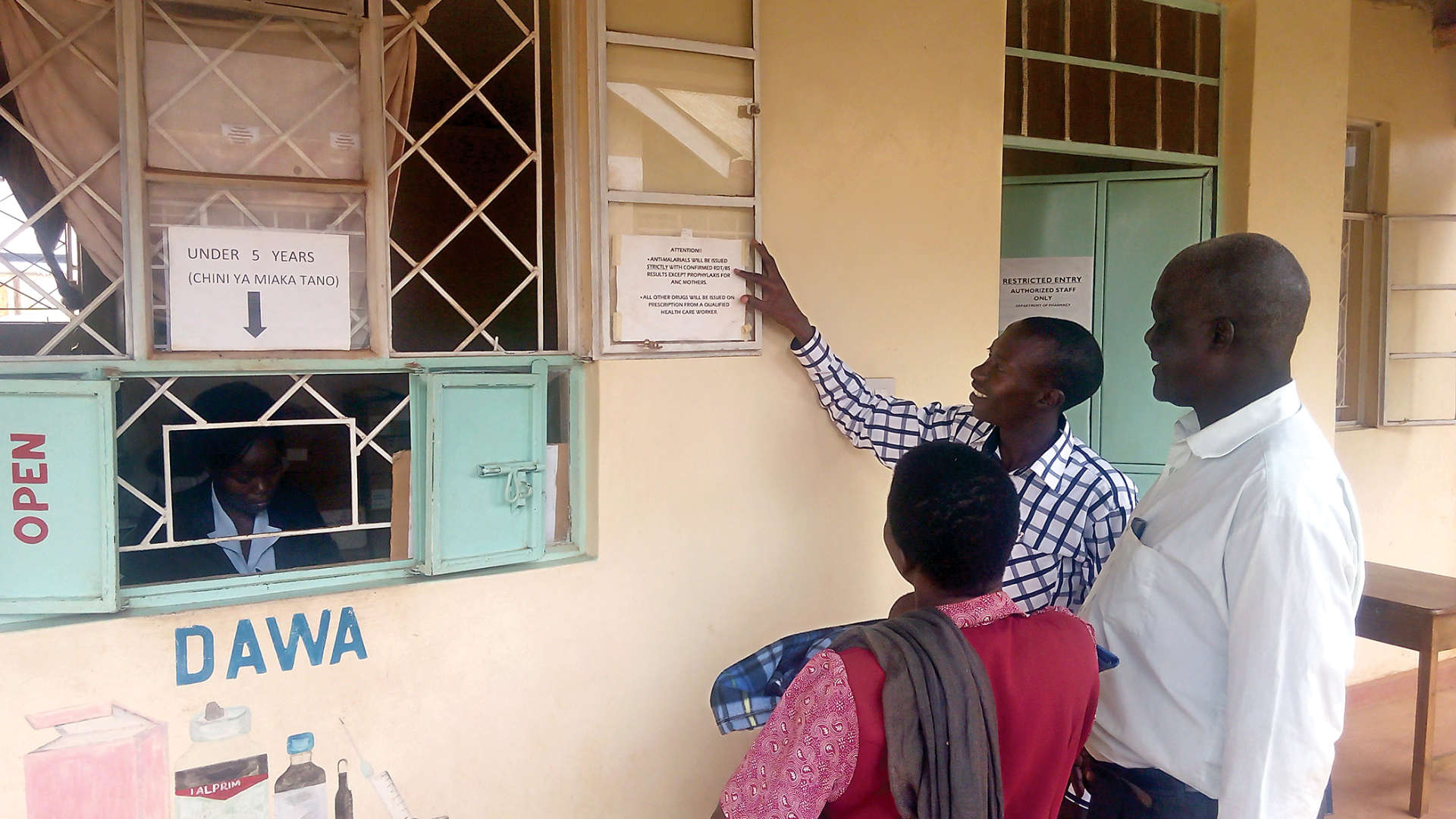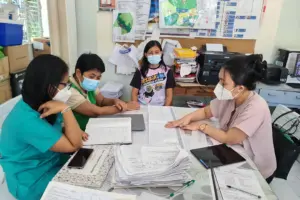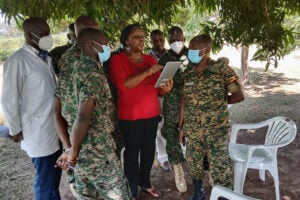
Quality Improvement
At the Khunyangu Hospital in Kenya, an improvement team reduced presumptive malaria treatment – and consequent drug shortages – by requiring laboratory or rapid diagnosis prior to malaria treatment. Photo credit: URC
Quality Improvement
As countries move toward fulfilling promises of universal health coverage (UHC), ensuring that health care services are of high quality is paramount. Globally, unsafe care is one of the top 10 causes of death and disability. In low- and middle-income countries, poor quality care causes up to eight million deaths annually and affects society’s most vulnerable groups disproportionately. Ensuring that any care received is of sufficient quality is crucial to the expansion of UHC.
From URC’s over 30 years of experience supporting countries to strengthen the delivery of quality health services, we know that achieving and sustaining quality health systems requires change. Poor quality care is not caused by weak providers alone. It is a system-wide problem that must be addressed through a whole-system approach to ensure effective, integrated, and efficient delivery of quality health services. Engagement and participation throughout the health system and from civil society, community stakeholders, and sectors beyond health such as education, employment, and communication, are critical to achieving quality health systems.
Building on country-defined goals and existing systems, URC supports leaders, policymakers, and program managers to operationalize quality strategies and promote coordination and harmonization of quality tools and approaches across the health sector. We support ministries of health and private providers to integrate data and feedback into performance reviews at all levels to holistically assess quality and to engage patients, families, and communities in accountability and governance, creating sustained demand for quality services. We strengthen skills in continuous use of data to drive improvements in the quality of health services and foster quality at the point of care through coaching, mentoring, and shared learning to identify best practices for scale-up. Key to our approach is advancing leadership, governance, and management capacity at all levels as well as competence and motivation of providers to deliver quality people-centered care.
URC’s leadership in strengthening health systems and quality improvement has supported health programming in 60 countries.
Global Leadership
Under the USAID Applying Science to Strengthen and Improve Systems (ASSIST) Project and its predecessors, the USAID Health Care Improvement Project and Quality Assurance Project, URC led USAID’s global program to develop quality health systems for 30 years, providing long-term support for national quality policies and strategies and point-of-care quality improvement in reproductive maternal, newborn, and child health (MNCH), HIV, tuberculosis (TB), malaria, Zika, nutrition, vulnerable children and families, and non-communicable disease services in 33 countries.
Operationalizing Quality Health Systems
- The USAID Regional Health Integration to Enhance Services in Northern Uganda (RHITES-N, Acholi) Activity is helping build the capacity of district and facility managers to deliver high-quality HIV/AIDS, TB, malaria, reproductive health and family planning, nutrition, and MNCH services that respond to community needs. And the Activity is providing national level support for the implementation of Uganda’s quality framework and strategic plan.
- The USAID Quality Services for Health (Q4H) Activity in Ghana is enhancing the Government of Ghana’s capacity to improve the quality of public and private health services.
- The Health Services Quality Accelerator Activity in Jordan is strengthening Ministry of Health leadership and governance capacity to address areas of weak performance to improve quality of care and reproductive, maternal, newborn, and child health outcomes.
- In the Philippines, URC supports the Ministry of Health in the Bangsamoro Autonomous Region in Muslim Mindanao through the BARMMHealth Project to achieve a self-reliant quality health system by strengthening the capacity of the government, civil society, and communities improve family planning and maternal and child health services.


